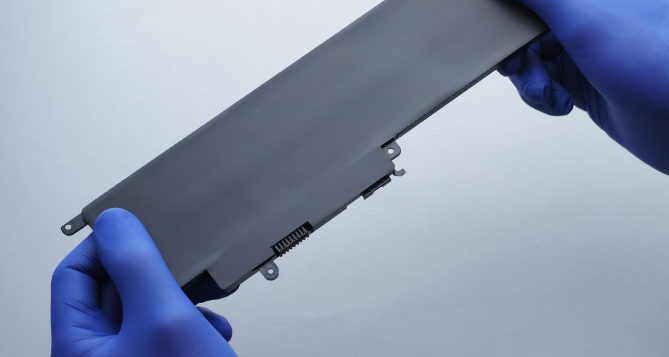
Which Batteries are Recyclable? A Guide to Proper Battery Disposal
Batteries power many of the devices and appliances we use every day, from flashlights and remote controls to cars and laptops. While incredibly useful, batteries also contain chemicals and heavy metals that can damage the environment if disposed of improperly. Thankfully, many common battery types are recyclable, allowing their materials to be reused rather than sent to landfills. Read on to learn which batteries can and should be recycled.
Types of Batteries
There are several different types of batteries in use today, each with their own chemistries, applications, and recyclability:
Alkaline Batteries
Alkaline batteries are common single-use batteries found in many household items like flashlights, smoke detectors, toys, and remote controls. Their chemistry is based around a zinc anode and manganese dioxide cathode. The alkaline designation refers to their alkaline electrolytes. Alkaline batteries should not be recharged and are best disposed of through recycling centers.
Lithium Batteries
Lithium batteries come in many types, like lithium-ion, lithium-polymer, and lithium-iron phosphate. They have high energy density and low self-discharge rates, making them popular for consumer electronics. Lithium batteries are rechargeable and are often found in cell phones, tablets, laptops, power tools, and electric vehicles. Used lithium-ion batteries can be recycled.
Lead Acid Batteries
The lead acid battery is the oldest rechargeable battery type. It uses lead electrodes in a sulfuric acid electrolyte solution. Lead acid batteries have many applications including vehicles, emergency lighting, wheelchairs, and more. Lead is toxic so lead acid batteries should always be recycled responsibly.
Nickel Cadmium (NiCd) Batteries
Nickel cadmium batteries use nickel oxide hydroxide and metallic cadmium electrodes. They have good discharge characteristics and are robust and tolerant of overcharging. However, cadmium is a toxic heavy metal so NiCd batteries have faded in popularity. Any remaining NiCd batteries should be recycled.
Nickel Metal Hydride (NiMH) Batteries
NiMH batteries were developed as an alternative to NiCd batteries. They substitute the cadmium with a hydrogen-absorbing alloy. NiMH batteries have similar characteristics to NiCd but are less toxic. They are common in rechargeable AA and AAA batteries. Like other rechargeable types, NiMH batteries can be recycled.
Which Batteries are Recyclable?
The good news is that all the common battery types listed above are recyclable, including:
- Alkaline batteries
- Lead acid batteries
- Lithium ion batteries
- Nickel cadmium (NiCd) batteries
- Nickel metal hydride (NiMH) batteries
Basically, any rechargeable battery or single-use alkaline battery can and should be recycled rather than thrown away with normal trash. Other less common batteries may also be recyclable but should be researched further. Batteries are often marked with a recycling symbol, which identifies them as recyclable.
How to Recycle Batteries
Many stores that sell batteries will also collect them for recycling, so check with local retailers for take-back programs. Some municipalities also offer household hazardous waste collection for batteries and other items. Here are some other tips for recycling batteries:
Find a Recycling Center or Program
Search online for battery recycling locations near you. Earth911.com has a recycling locator that can help.
Remove Batteries from Devices
Batteries must be removed from their devices or packaging before recycling. Use screwdrivers or other tools to safely remove them.
Tape Battery Terminals
Cover the positive and negative terminals with masking, electrical, or duct tape before transporting and recycling. This prevents fires from accidental contact.
Store Batteries Safely
Keep batteries in a cool, dry place and away from flammable materials until you can take them for recycling. A ziplock bag or sealed plastic container works well.
By taking these steps, you can easily recycle many types of batteries rather than trashing them. If ever in doubt about a battery, contact your local waste authority or recycling program for guidance.
Benefits of Battery Recycling
There are several excellent reasons to recycle batteries rather than throwing them out:
Conserves Natural Resources
Recycling allows battery materials like lithium, lead, and nickel to be reused rather than mined new. This preserves natural resources.
Prevents Hazardous Waste in Landfills
Batteries contain heavy metals and caustic chemicals. Recycling keeps these out of landfills where they can contaminate soil and water.
Allows Materials to be Reused
Recycled lead, steel, plastic and other battery components can be turned into new batteries or other products.
Battery recycling is simple and provides major environmental benefits. So whenever you need to dispose of alkaline, lithium-ion, lead acid, or other battery types, remember to recycle responsibly. The earth will thank you!
Conclusion
Many common household battery types like alkaline, lithium-ion, nickel metal hydride, and lead acid batteries are recyclable. By bringing used batteries to designated recycling locations rather than throwing them away, we keep hazardous materials out of landfills and allow battery components to be used again. Check with local retailers and waste management programs to find battery recycling services near you. Recycling batteries is just one small way we can work together to help protect our planet.



